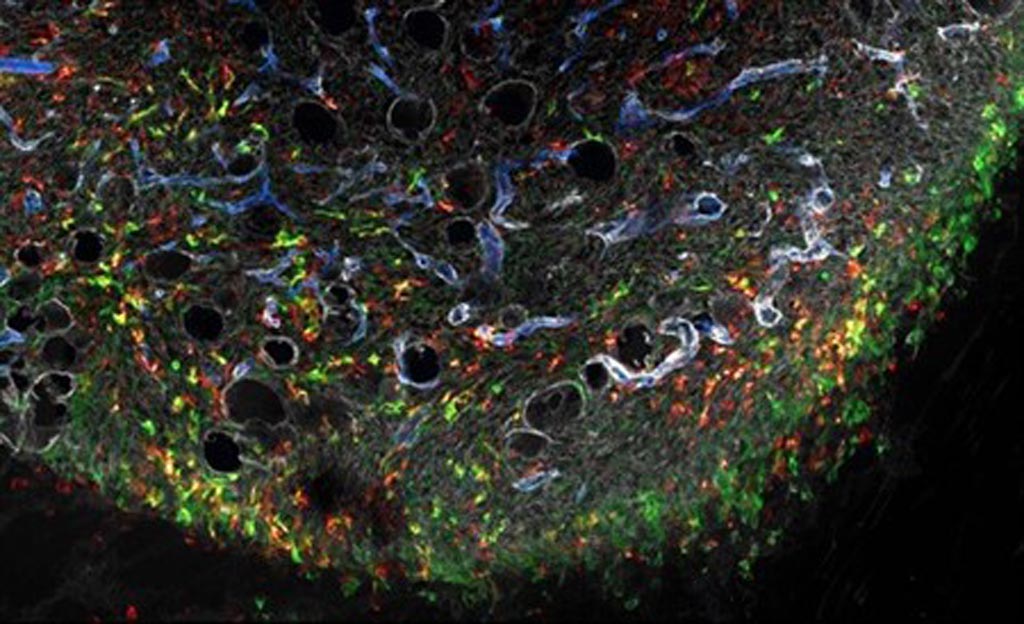Tumors Avoid Destruction by Immune System
By LabMedica International staff writers
Posted on 20 Feb 2018
A molecular and pathway that aids tumors in avoiding destruction by the immune system was found to comprise natural killer cells, conventional type 1 dendritic cells, and prostaglandin E2.Posted on 20 Feb 2018
Conventional type 1 dendritic cells (cDC1) are critical to a tumor's ability to avoid destruction by the immune system. In this regard, investigators at The Francis Crick Institute (London, United Kingdom) found that cDC1 accumulation in mouse tumors often depended on natural killer (NK) cells that produced the cDC1 chemoattractants CCL5 and XCL1. Similarly, in human cancers, CCL5, XCL1, and XCL2 transcripts within tumors were found to correlate closely with gene signatures of both NK cells and cDC1 and were associated with increased over all patient survival.

Image: A mouse tumor (grey/white areas) being infiltrated by cDC1 (yellow cells) that exited from blood vessels (blue). Red and green identify other immune cells. Infiltration by cDC1 triggers anti-cancer immune responses; this tumor will eventually be rejected by the mouse\'s immune system (Photo courtesy of Dr. Caetano Reis e Sousa, The Francis Crick Institute).
In a recent paper published in the February 8, 2018, online edition of the journal Cell, the investigators extended these findings by reporting that tumor-derived prostaglandin E2 (PGE2) impaired NK cell and cDC1 attraction, which resulted in improved ability of the cancer to avoid immune response.
"Our findings have given us a renewed appreciation of the importance of natural killer cells and cDC1 in the immune response against cancer," said senior author Dr. Caetano Reis e Sousa, Senior Group Leader at the Francis Crick Institute. "It is still early days, but attracting more cDC1 to tumors could be the basis of a new immunotherapy for cancer patients. Now that we know a bit better how this key anti-cancer response works, we can look at identifying other ways in which cancers get around it. This understanding will ultimately help us to develop new immunotherapy approaches to help more patients."
Related Links:
The Francis Crick Institute













